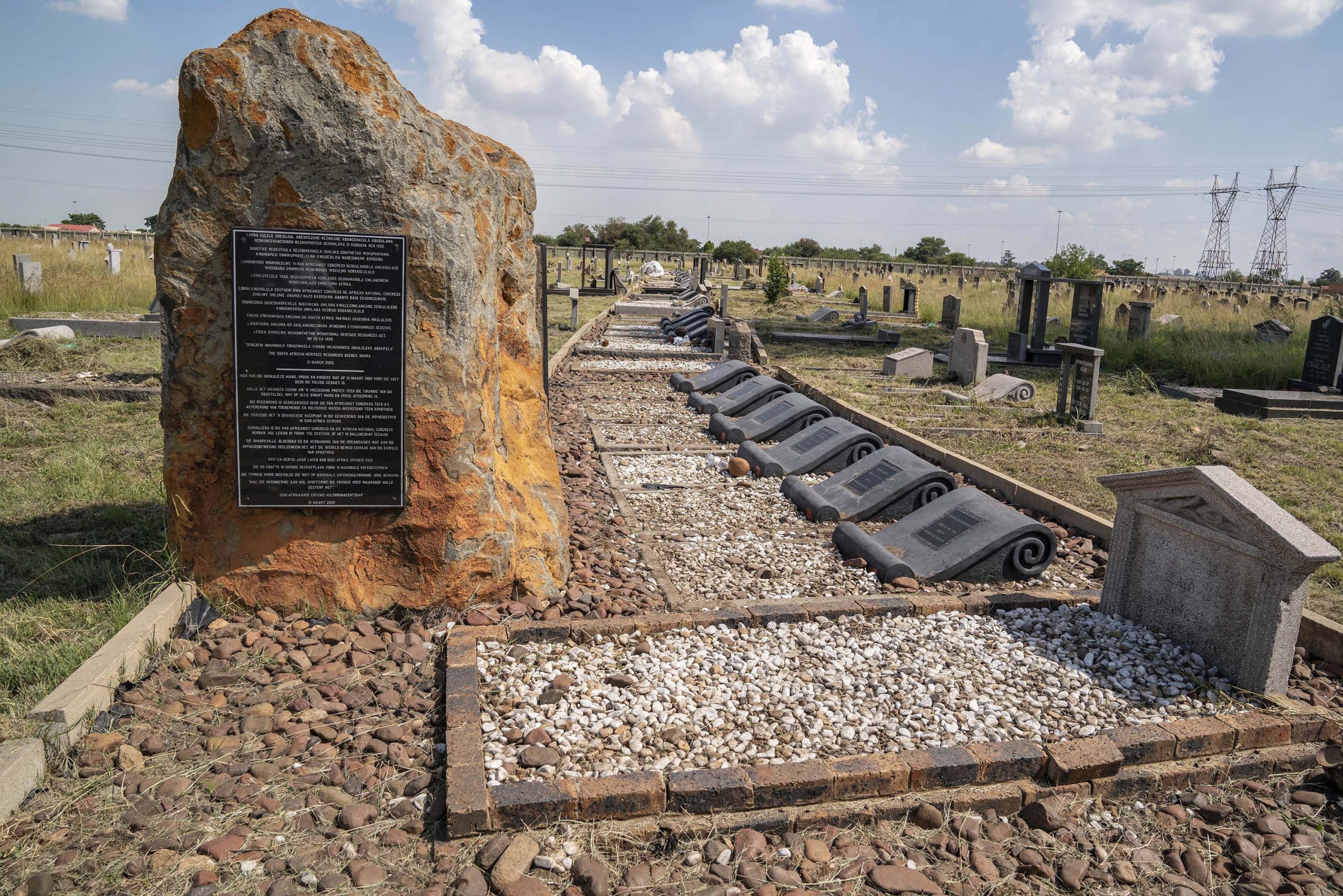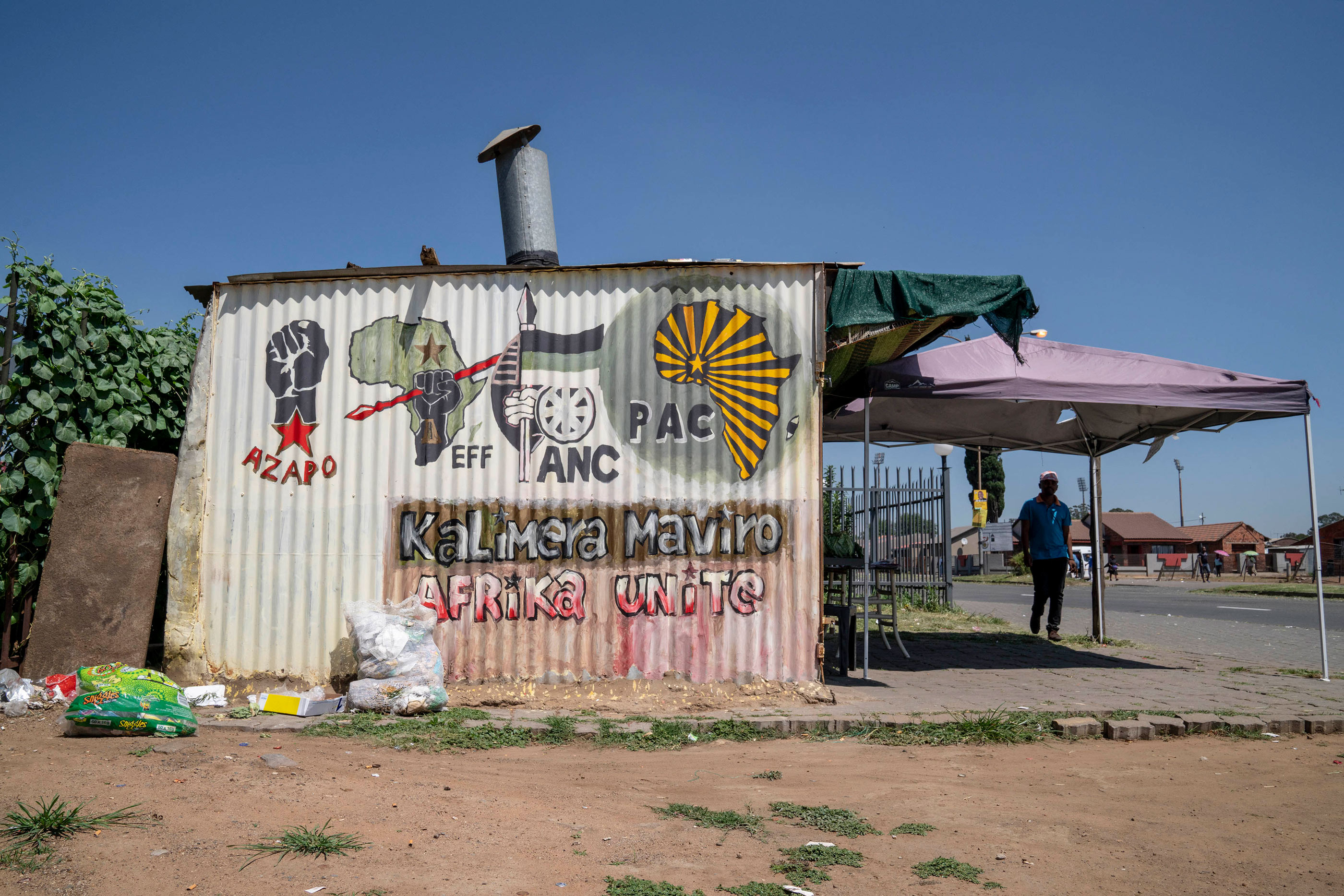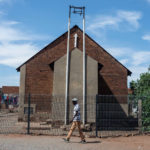Sharpeville residents resent celebration splurge
The historic town hosts expensive celebrations each year on Human Rights Day, but residents would prefer the municipality to spend the money on development and basic services.
Author:
21 March 2019

“All that money that is going to be spent for one day… That money, it can be used to develop Sharpeville. So this year, we don’t need a 21st March because we don’t have a reason why we should celebrate human rights while we are not living in the right conditions,” says Mzwakhe Mcelu.
Mcelu is a community leader in Sharpeville, south of Johannesburg. He says residents feel disconnected from the annual celebration of Human Rights Day as they feel the obscene sums of money squandered on celebrations could be used for the betterment of the historic town.
Quoting from the Constitution, he says they have the right to adequate housing “but we have been waiting, even after democracy. And every year, these guys come and spend money with their nice big cars, they come and dance and drink alcohol at Sharpeville. Then they lie to us and they go back while we are still living like this as the community.”
Related article:
Mcelu says the celebrations are merely to impress the world and they cannot continue while the residents of Soul City, a nearby shack settlement, have no toilets or running water.
Residents, with support from taxi associations, shut down the streets of key towns in the Vaal Triangle on Wednesday to protest against the money being spent on 21 March celebrations.
“They spend millions every year on 21 March, but our people, they are still living in hell here like at Sharpeville hostel … So the community members say they are tired, because they are not even benefiting nothing from that event … Even the voting station is not going to work this year, we are going to close it down,” says Mcelu.

Temporary face-lift
There are large heaps of rubbish and cut grass on each corner of the bumpy gravel road leading to Phelindaba Cemetery, where the 69 victims of the Sharpeville Massacre of 1960 are buried. A week before the commemoration, the rest of the cemetery is a sorry sight, with tall grass and weeds growing erratically everywhere, except for one patch.
The crater-sized potholes in most of the town’s roads require patience and creative driving. They force drivers to slow down and soak in the taverns, funeral parlours, salons, lounges and tuck shops along Seeiso Street, the main road leading to Dlomo Dam. The dam is one of the six places in Sharpeville that the government declared a heritage site in 2011.
A week before the annual celebration, the pothole-riddled streets are given a temporary face-lift. The town buzzes with indistinct chatter and the general hustle signifying an impending critical occasion. Residents say that for the first time in ages, litter has been collected, the grass cut and a few mammoth potholes on the main roads filled.
Project director at Mmollo Arts, McDonald Mabaso, says, “Our heritage sites are white elephants, they [the organisers] do nothing for the whole year … The streets are dirty, there is dirt everywhere. Even now, they only clean the main roads. If you go into the other parts, you will see.”
Mcelu, who has lived in Sharpeville his whole life, says they have been waiting for development, including the repair of the dilapidated roofs on the ancient houses that date back as far as 1935. They are also still waiting for the title deeds of houses that stand on municipal land.

Community centre
Mcelu is the founder of the Vaal Metro Multi-Disability Academy. The centre has been operating since 1979, first as a hostel for labourers working in the surrounding industrial areas, including Vereeniging.
At the zenith of the protracted freedom struggle, playwright and actor Gamakhulu Diniso used the theatre there to hide activists.
Now, the academy has a computer lab that is accessed not only by the disabled at the centre but also the community at large. It boasts a gallery, theatre and gym, and offers boxing and karate classes. A vegetable garden provides supplements for the soup kitchen and residents in need of food.
Mcelu says a hostel restoration programme put in place around 2012 was halted halfway through. The centre allegedly only receives R3 000 a month from the Department of Social Development to feed 48 disabled children. Most of the money keeping the centre running comes from the National Lottery Commission and private funding.
He says the government cites budget constraints when they ask for the hostel to be developed, and also give them excuses when it comes to title deeds. They have scant trust in the assurances of politicians as a result.

‘Wasting our money’
“We don’t want to see them wasting our money … We have been here for so many years waiting for development, waiting for title deeds, and we have been so patient,” he says.
The soles of his formal black and maroon shoes are clean.
“I was shot … Our parents didn’t work so we used to take guns and go and do some robberies … So I was shot by my friends here in this room,” he says, spinning his wheelchair around and pointing at a room with a painting of a man in a wheelchair on the wall.
He was paralysed from the waist down following the incident in 2002.
“There are no tar roads. Myself, I am using a wheelchair, I am suffering … Look at my tyres, there [is] no access because there are no pavings. Look at the grass, there is no cutting. The infrastructure is bad because these buildings have existed for more than 60 years, they are the first buildings to be built in Sharpeville,” he says.

‘Our municipality does nothing for us’
Xakekile Nguxe, 35, has been living there since 2004, having moved from Orange Farm. He says, “We don’t even have a document to say we can live here.”
Nguxe wonders how the government plans to tackle unemployment when numerous industries are shedding jobs as so many prepare to enter the job market. Nguxe considers himself unemployed, making money for his partner and two children by doing plastering jobs and gardening. His employer has not paid him in months because his client, the municipality, has not paid him.
“Where we live, we don’t have title deeds. Since they promised us, my father even passed away waiting for it. Where I live, I have no toilet, I have no water. I use my neighbour’s,” he says.
Playing with his son, Monwabisi Mpaka, Nguxe says, “If you want something, you must work for it because our municipality does not do anything for us.”

Hopeful of celebrity help
Others, like Elizabeth Mokoena, who hails from Three Rivers, do not think shutting down the town during Human Rights Day celebrations or withholding votes is worth doing. Mokoena, 56, says she has been living in Sharpeville since 2002.
“It does not help us to say they must stop the celebrations. They help us, the celebrities come here and they can organise for people to be taken care of,” she says hopefully.
Mokoena has no title deed, no toilet, no water, no tap and no electricity. Sometimes she has to use her neighbours’ toilet in the middle of the night, which can be annoying for them.
Her old, crumbling brown house nestles obstinately between a taxi association office and a petrol station. Her view of Dlomo Dam is occasionally obstructed by cars passing by on the main road.
Inside Mokoena’s house is a small black TV, three kettles, two radios – one battery-operated – a fridge and a microwave on top of a brown doily. There is also a Primus kerosine stove and a two-plate stove.

Living in limbo
She is one of the only people without electricity in the area.
In September 1984, Sharpeville, along with other townships, embarked on a rent boycott in which they did not pay for electricity. The boycott never ended. Emfuleni Local Municipality was placed under administration in January last year and owed Eskom more than R600 million in 2018.
Mokoena says an informal electricity connection is out of the question. Sitting on a wooden bench in her house, she shrugs and puts her hands between her scrawny knees. “How will I do that when they clearly say we must not do that?” she snaps.
She is hesitant to fix up a place from which she can be moved at any time.

‘Place of the dead’
Three left turns from the white tent, a dusty brown pathway is used by learners, cows and residents. There is a simple flow of life here.
A group of young men play draughts in a cool patch of shade under a huge tree. Children dressed in different uniforms casually zigzag through dozens of tombstones, making their way home from school. Cows graze in the lush green fields, trampling on raised land while chickens peck at the ground.
As a boy, Mdengase Govuzela used to play and smoke here. He always knew it was a gravesite. This is Hlala Kwabafileyo, “a place of the dead”.
Good News Children Outreach crèche stands adjacent to old four-room houses and makeshift shacks that face another dozen or so eerie grey and brown tombstones bearing faded names. The oldest name dates back to 1921. Old plastic, recyclable cans, litter, cow dung and rich brown soil lies scattered between the tombstones, which stretch from one side of the site to the other.
A man who asked not to be named says he has been living in the burial ground for 12 years. There are no toilets and, like Nguxe, he has had to rely on others. He says the space used to be a dump, but now his humble home is decorated with purple morning glory and pink rose bushes, green baby cacti and aloe plants.
He says there were already people living there when he arrived and is aware that he lives on top of dead people. More than one councillor has told them to move from the area, but he still plans to vote.
“You can’t complain if you don’t vote. I am hoping they will give me my own piece of land so I can build a home. I am too old to live in a place like this with my children,” he says.

Sharpeville memorial
The dreadlocked man was one of the builders of the Sharpeville Human Rights Precinct, a towering orange memorial opposite the police station in Sharpeville where officers once fatally shot and injured peaceful protestors. Inside, there are 69 individual memorials, an installation dedicated to those who were killed.
In the days leading up to Human Rights Day, steel tent structures cowered next to the imposing but rusty floodlights of the historic George Thabe Stadium in Sharpeville. It was here that then president Nelson Mandela signed the Constitution on 10 December 1996, following a charismatic speech.
Today, many politicians and dignitaries will celebrate Human Rights Day in a large white tent and honour those who died 59 years ago, while Mcelu and his fellow residents continue to hope for access to water, sanitation, infrastructure, electricity and a better life.


